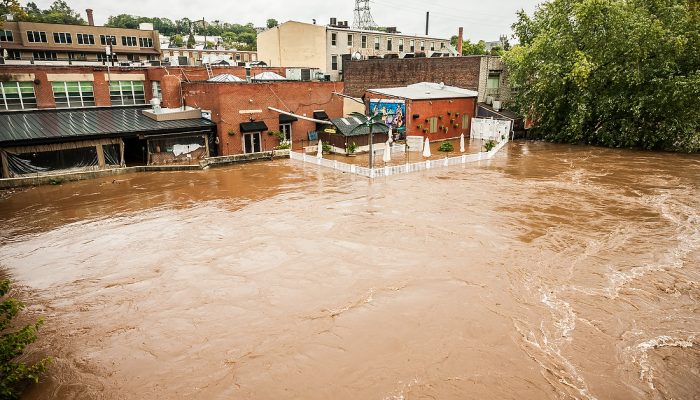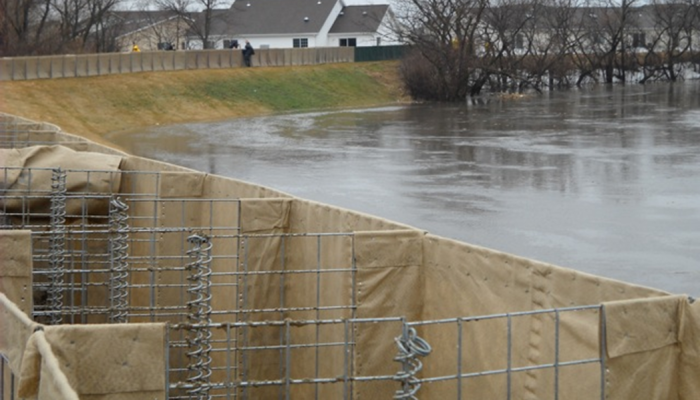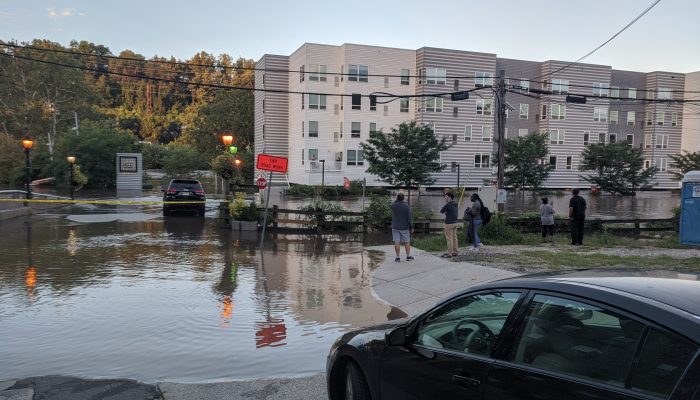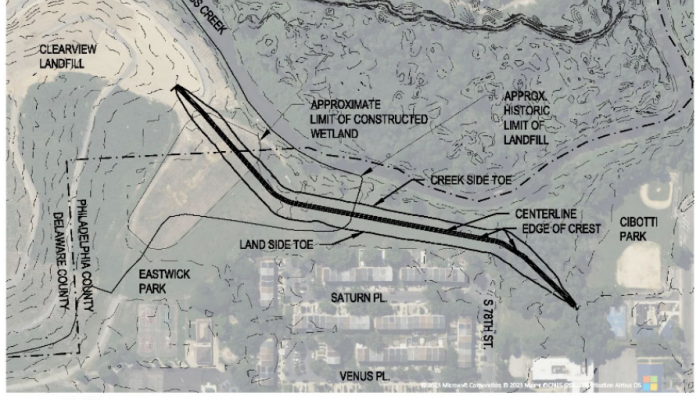In some parts of the country, tornados or wildfires are the biggest threats from nature. Here in Philadelphia, flooding is the natural disaster most likely to affect you. Almost all areas of our city are susceptible to floods. To help you stay prepared, we’ve put together ten important facts about flooding in Philadelphia.
1. Know the types of flooding we experience
Flooding is known to occur in Philadelphia in 3 ways.
- Riverine: When water levels rise in rivers, creeks, and streams and overtop their banks.
- Coastal: When a hurricane or tropical storm creates a storm surge along the tidal Delaware River.
- Infrastructure or urban flash flooding: During large storms, underground sewers quickly become overwhelmed. Water flows out of the sewers and into streets and properties. Floodwater can backup out of storm drains, manholes, and plumbing fixtures, such as toilets or drains in basements.
2. Sign up for ReadyPhiladelphia Alerts
Want to stay up to date on the latest information about emergencies and severe weather? Get real-time notifications through ReadyPhiladelphia, the region’s emergency text and email alert system. You can start receiving alerts by registering online.
3. Download the Philadelphia Flood Guide
The City’s Flood Risk Management Task Force has an in-depth flood guide that you can download. The guide covers flooding risks, preparation measures, and more. Access the Philadelphia Flood Guide here.
4. Look at the FEMA Floodplain
Want to know if your property is in a FEMA Special Flood Hazard Area (SFHA)? Use the FEMA Flood Map Service Center (MSC) to find official information on flood hazards in your area.
5. Apply for the Basement Backup Protection Program
Philadelphia residents may qualify for the Philadelphia Water Department Basement Backup Protection Program (BBPP), which provides installation of plumbing devices called backwater valves that can reduce backups. Some properties may also get downspout modifications at no cost. Find more information about the program and apply here.
6. Acquire flood insurance
The City of Philadelphia is part of the National Flood Insurance Program. That means any property in the city can acquire federal flood insurance. Learn more about the program.
7. Prepare a Flood Emergency Plan
It’s important to be ready for any type of emergency. Using a template from the Office of Emergency Management, prepare an emergency plan with a flooding component.
8. Make sure your property is up to floodplain code
Develop or renovate your property to meet the latest floodplain codes (required if your property is located in a FEMA Special Flood Hazard Area). Learn more about how to get approval for construction in a floodplain.
9. Brush up on Safety Tips
If a flooding event occurs, conditions can be very dangerous. Make sure you know what to do to keep yourself and loved ones safe. Review a complete list of flood safety tips in OEM’s severe weather guide.
10. Fill out a Flood Survey
Did you know you can help the City plan better solutions to flooding? If you’ve experienced flooding, fill out this survey to help the City plan for future flooding.




